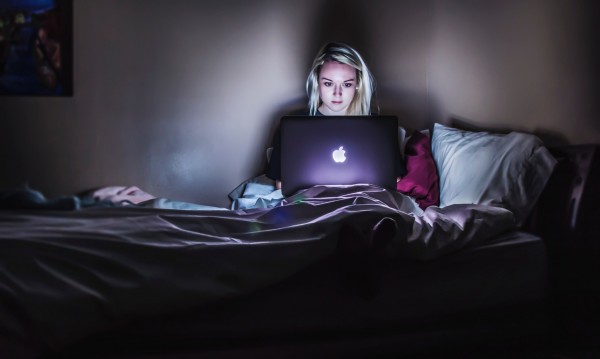Beware of Screen Burn: Don't Spend Too Much Time on Your Computer!

A screen burn is an irritating feeling of the skin, resulting from too much exposure to rays coming from the computer screen, specifically in a dark room or at night.
Researchers say that one week in front of a computer screen is equivalent to 25 minutes of exposure to the sun. So should you apply sunblock every morning before sitting down to work on the computer?
In an scrpt-like article from The Guardian, a screen burn is described, along with how a person acquires it. There, a 17-year-old individual is described to look much older than actual. This is because of spending a lot of time under the sun without factor 50 on—or so we thought.
We're still basically on lockdown; although restrictions have been lifted, we still spend a lot of time indoors and refrain from going on vacations under the sun. Yes, even if it is summertime.
So let's look at the cause of such advanced aging: screen burn.
ALSO READ: A Benefit of Exercise That You Probably Haven't Heard Much About
What is Screen Burn?
Screen burn is described as an irritating feeling of the skin, resulting from too much exposure to radiation from a computer screen, especially in a dark room or at night.
According to experts, screen burn is caused by the eyes looking into the screen for a long time, but the brain falsely feels the pain on other parts of the face resulting in a screen burn.
Researchers at consumer goods giant Unilever say that a week spent in front of a screen, be it a desktop computer, a tablet, or a mobile phone, can have a similar effect on the skin as the 25-minute exposure to the sun.
One week versus 25 minutes may have quite a substantial difference. However, it adds up as one spends an extended period looking at device screens.
Here, they define one week as five consecutive working days for at least six hours a day.
DON'T MISS THIS: Coffee May Stop the Occurrence of Irregular Heartbeats, Research Says
Blue Light
The study finds that artificial blue light that gadgets release seemingly is said to be the highest light energy in terms of the visible spectrum. It occurs naturally, but one gets more of it from a computer or phone screen.
Blue light penetrates deep into one's skin through the epidermis and dermis to the subcutis layer, crashing the collagen. It can lead to premature or advanced aging, although it remains unclear what dose is needed for this to happen or the impacts of long-term exposure to blue light.
Study authors said that long term exposure to the screen also has effects on an individual's melatonin levels, as well as his sleeping patterns.
How much damage can blue light cause?
Typically, the latest computer models feature LCD or LED screens and do not produce hazardous amounts of UV radiation.
However, most computers, televisions, and even tablets and smartphones release other light types that several studies present can be dangerous to the skin with too much exposure.
Studies done recently have found that the blue light, also known as HEV or hight-energy visible light, produced by digital devices could possibly be just as dangerous as getting too much exposure from the sun.
On the other hand, some researchers have hinted that the impacts can even be more powerful in people who have darker skin since blue light can cause skin darkening and hyper-pigmentation.
Experts are hoping that additional research will shed light on the theory.
IN CASE YOU MISSED THIS: Chocolate Cake for Breakfast to Lose Weight? Here's What You Need to Know
Check out more news and information on Aging and Dermatology on MD News Daily.
Sep 04, 2020 07:20 AM EDT





